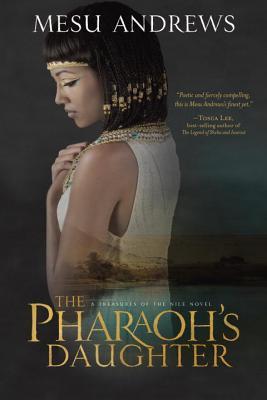
2015 Reading Challenge, Week 21 - A Book that was based on a true story.
This one, of course, is based on very ancient Biblical history.
Anippe has grown up in the shadows of Egypt’s good god Pharaoh, aware that Anubis, god of the afterlife, may take her or her siblings at any moment. She watched him snatch her mother and infant brother during childbirth, a moment which awakens in her a terrible dread of ever bearing a child. Now she is to be become the bride of Sebak, a kind but quick-tempered Captain of Pharaoh Tut’s army. In order to provide Sebak the heir he deserves and yet protect herself from the underworld gods, Anippe must launch a series of deceptions, even involving the Hebrew midwives—women ordered by Tut to drown the sons of their own people in the Nile.
When she finds a baby floating in a basket on the great river, Anippe believes Egypt’s gods have answered her pleas, entrenching her more deeply in deception and placing her and her son Mehy, whom handmaiden Miriam calls Moses, in mortal danger.
As bloodshed and savage politics shift the balance of power in Egypt, the gods reveal their fickle natures and Anippe wonders if her son, a boy of Hebrew blood, could one day become king. Or does the god of her Hebrew servants, the one they call El Shaddai, have a different plan—for them all?
MY THOUGHTS:
I've been told about the sight of the wonderful, life-giving River Nile lying in the scorching Egyptian climate, the only strip of blue. And I've been fascinated with the lavish pyramids and burial sites of Egypt. This story takes us there, to the time period of the first few chapters of Exodus. Anippe is an Egyptian princess who was forced to make a political marriage to Commander Sebak and move to the Delta, with its grain fields and Hebrew slaves. This is the story of how she becomes the adopted mother of Moses, when she went down to the river to bathe and discovered his basket.
This time and place takes the phrase, 'Our lives have never been our own' to a crazy level. So many characters find themselves forced to do what's regarded as expedient for their people and country. Even those who make cruel decisions are shown to have been victims of the same phenomenon in their own lives. My heart ached for Tut, the confused ten-year-old boy who was forced into marriage with an older woman, even though I hated the cold-hearted monster he becomes later in the story when he made his edict about the Hebrew boy babies. I guess when you consider that Ancient Egypt was a place with so many gods for everything you could think of, it's no wonder trying to determine the person at the top got a bit confusing. How creepy that Anippe, who grew up alongside her brother, honestly came to believe that his emotional state translated as turmoil in the natural elements.
Mesu Andrews took quite a bit of poetic license with the plot, giving characters such as Puah and Shiphrah, the two midwives, their own stories of intense drama, tying in with that of the Egyptian princess. I can't help thinking of the flak certain biblical movies such as 'Noah' have received in recent years, making me wonder whether she 'Hollywood-ised' this story to some extent (such as the deal made between Puah and Anippe). The ruses Anippe goes through to claim the son she rescued from the River Nile is put forward as very tricky and underhanded in this novel. What a lot of personal and political intrigue gets drawn out of one simple passage in the Bible about young Moses being retrieved from the River.
I think the biggest strength of this novel was also the greatest weakness for me. The author did such a lot of research, the authenticity makes it harder for me to bond emotionally with any particular characters. Even 'good' guys, like Sebak, come across as a bit harsh. The ancient Egyptian mindset, which I'm sure Ms Andrews has nailed, leaves me cold, and thankful that I escaped being born into that time and place.
So overall, although this novel has all the hallmarks of another brilliantly researched Mesu Andrews novel, it's not my favourite title of hers. However, this won't stop me reading more.
Some of my favourite quotes.
'Mered (Puah's husband) didn't understand Egyptian gods and symbols and legends, but neither did most Egyptians... At least El Shaddai was unchanging, though many Hebrews had given up hope of his ancient promises.'
Thanks to WaterBrook Multnomah and Blogging for Books for my review copy
3 stars

No comments:
Post a Comment